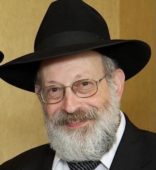Dr. Kenneth Prager considers it a “shameful state of affairs” that greatly respected poskim, or decisors of Jewish religious law — including such greatly respected decisors as Rabbi Yosef Shalom Elyashiv, Rabbi Shlomo Zalman Auerbach and Rabbi Aaron Soloveitchik, of blessed memory; and contemporary poskim like Rabbi Hershel Schachter, Rabbi Dovid Cohen and Rabbi J. David Bleich, consider “brain death” something less than actual death (Opinion, Sept. 2).
Treating the “brain dead” as halachically deceased, Dr. Prager insists, will “save lives” because of the organs that can successfully be taken from their hearts-still-beating bodies. But the poskim listed above, and many others, consider the “brain dead” patient entirely alive. In halacha (and secular law no less), one may not end one life to save another.
And, as to saving lives, what of the judgment of some contemporary “ethicists” who consider even less severe conditions than “brain death” to constitute “legal death?” There are already medical professionals who advocate for “donation after cardiac death” in cases of the brain-damaged but not “brain dead” patients — the removal of such patients from life-support and, soon after their hearts stop, the harvesting of their vital organs. And is it hard to imagine that there will be advocates for doing the same to patients in “persistent vegetative” or “minimally conscious” states? Or other patients with severely limited “quality of life?”
What really annoys Dr. Prager, it is clear, is what he judges (although such judgment is rightly halachic, not medical) to be a “chillul Hashem, a desecration of G-d’s name,” the readiness of critically ill patients to “benefit from organs retrieved from patients they say have been murdered [i.e. harvesting a patient’s organs after “brain death” while his heart is still beating].”
But were a person in fact murdered by an assailant, would it be somehow immoral for an opponent of murder to benefit from the victim’s organs if the decedent’s family chooses to donate them? There are two separate halachic, and ethical, questions here: 1) What constitutes death? and 2) May one accept organs procured in what the recipient would consider to be an illicit way? They are not related issues, and portraying them as conjoined may be emotionally compelling but is neither ethical nor logical.
No, the fact that world-class poskim dare to render decisions to which their scholarship, experience and intelligence lead them is not a “shameful state” of halachic affairs. What’s shameful is the attitude that halacha is malleable, and that a particular medical goal, no matter how well intentioned, can dictate what poskim “should” decide.
Rabbi Avi Shafran
Director of Public Affairs
Agudath Israel of America
The New York Jewish Week brings you the stories behind the headlines, keeping you connected to Jewish life in New York. Help sustain the reporting you trust by donating today.





